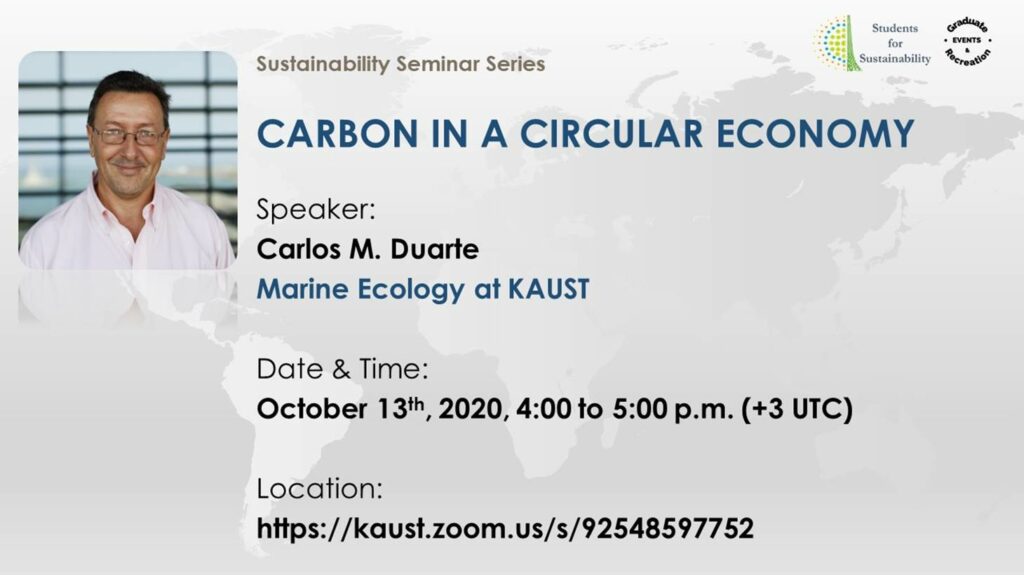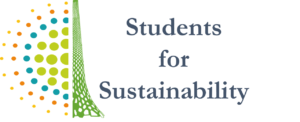
Tuesday, October 13, 2020
4:00 – 5:00 p.m.
On Zoom
Sustainability Webinar Series is a platform for raising scientific engagement on the complexity of sustainability. You are invited to the second webinar of this semester on October 13, 2020 at 4:00 p.m. entitled “Carbon in a Circular Economy” by professor Carlos M. Duarte.
Abstract
There is a crisis of confidence in the world’s ability to meet the challenges of climate change. During a year in which nations were expected to strengthen their pledges to reduce greenhouse gas emissions, there was little headway toward meeting the goals of the Paris Agreement, and meeting this challenge seems harder than ever while the window of opportunity to reach the goal is narrow and is closing rapidly. In this context, collaboration is key. Collaboration requires a framework that all can relate to and allows all contributions to be organized, in a synergistic manner, to achieve the goal. To achieve this, we have joined forces, from our distinct background, to seek inspiration from Nature is how we carbon could be managed to achieve climate goals while generating benefits for all. The solution rests in embedding carbon in the Circular Economy, which emulates how nature manages carbon to support growth while achieving climate stability.
About the speaker
Carlos M. Duarte is a professor in Marine Science at KAUST. He received his Ph.D. from McGill University, Montreal, Canada in 1978. From his early research days in Spain, Duarte has established himself as one of the leading global authorities on the ecology of seagrass meadows and coastal ecosystems. He is the most versatile aquatic ecologist of his generation; he works from the tropics to polar ecosystems, from macrophytes to microbes, from coastal systems to open ocean gyres using all types of approaches. Many of his synthesis papers have set the stage for the field; e.g. his work initiated the discussion on the heterotrophic nature of oligotrophic systems and identified the role of hypoxia thresholds for marine biodiversity. His research is characterized by independence, creativity, serendipity, and interdisciplinary linking, as well as the capacity to organize and collaborate with large interdisciplinary teams.
This event is brought to you by:



